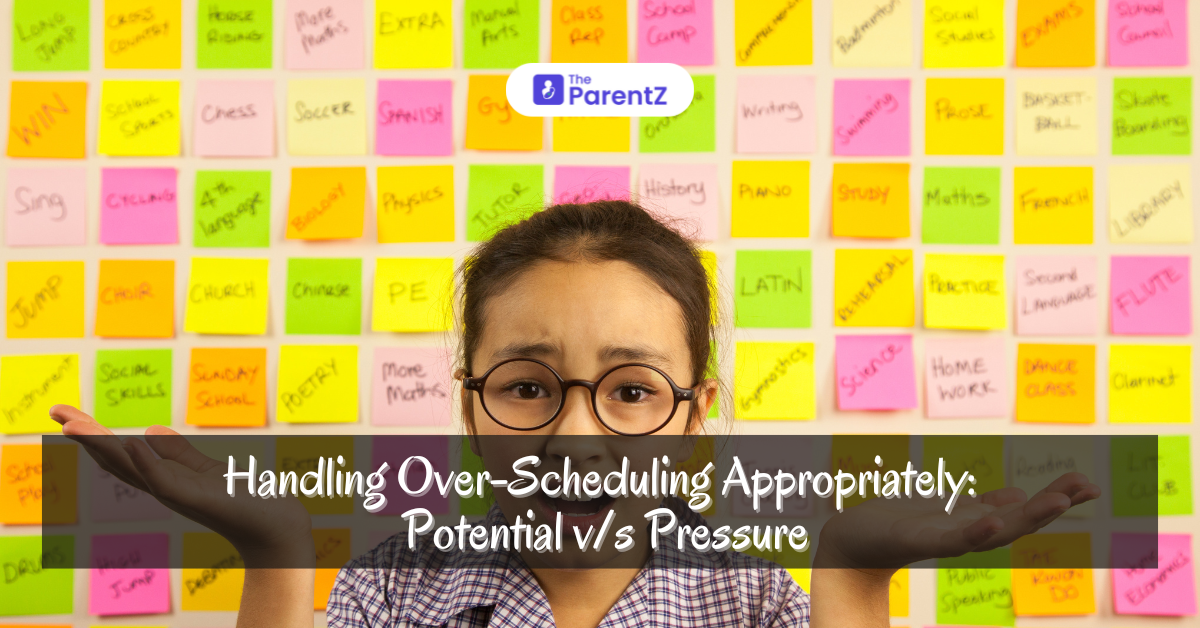In today's hyper-competitive world, parents often feel immense pressure to equip their children with a plethora of skills. From academic excellence to athletic prowess, the desire to mold well-rounded individuals is understandable. However, the pursuit of perfection can sometimes lead to a dangerous pitfall: over-scheduling.
While pushing children beyond their comfort zones can foster growth, it's equally important to recognize the potential drawbacks. When the relentless pursuit of achievements eclipses a child's overall well-being, the consequences can be far-reaching. We've seen countless instances of high-achieving children experiencing a sudden decline in performance during their teenage years. This often stems from burnout, a condition triggered by excessive pressure and lack of downtime.
Identifying the Signs of Over-Scheduling
Recognizing the early signs of over-scheduling is crucial. Look for these indicators:
- Constant Stress: If your child is constantly anxious or irritable, it might indicate an overloaded schedule.
- Decreased Interest: Losing enthusiasm for activities they once loved could indicate burnout.
- Physical Complaints: Frequent headaches, stomachaches, or sleep disturbances might be physical manifestations of stress.
- Academic Decline: A grade drop or difficulty concentrating can be a red flag.
- Social Withdrawal: Reduced interaction with friends or a preference for solitude might signal emotional distress.
Understanding the Parental Perspective
Acknowledging parents' well-intentioned efforts is essential. The desire to provide opportunities and shape a child's future is a powerful motivator. However, it's equally important to understand that children have unique needs and limitations. Projecting parental ambitions onto children can create an immense burden.
Striking a Balance
The key lies in finding a rhythmic balance between pushing your child and allowing rest and rejuvenation. Here are some practical tips:
- Prioritize Quality Over Quantity: Instead of enrolling your child in numerous activities, focus on a few they genuinely enjoy.
- Listen to Your Child: Regularly communicate about their feelings and preferences with your child. Respect their limits.
- Schedule Downtime: Ensure your child has ample time for relaxation, hobbies, and unstructured play.
- Set Realistic Expectations: Do not compare your child to others. Celebrate their achievements without undue pressure.
- Encourage a Growth Mindset: Foster a belief in continuous improvement rather than a fixed mindset focused on perfection.
- Seek Support: Don't hesitate to seek advice from professionals like counselors or child psychologists if needed.
Remember, the goal is to nurture your child's potential, not to create a miniature adult. Appropriately handling overscheduling can empower your child to thrive academically, socially, and emotionally. It's about fostering a lifelong love of learning and exploration, not just achieving short-term goals.
Conclusion
Let's shift our focus from the relentless pursuit of external validation to cultivating inner resilience and joy. By creating a nurturing environment that prioritizes well-being over achievements, we can empower our children to reach their full potential in a sustainable and fulfilling manner.
It's okay to make mistakes and learn along the way. The most important thing is to approach it with love, understanding, and a genuine desire to see your child flourish.





Be the first one to comment on this story.